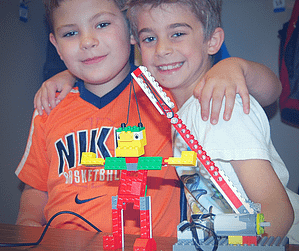
Why Parents are Choosing After School Classes.
Why do parents choose after school classes?
- After school classes are fun. Kids enjoy going and learning more about chess, fencing, trying out track or soccer, or learning how to code their own video game.
- After school classes are engaging. Kids look forward to the school day when they get to participate in an after school activity with school mates.
- After school classes keep kids connected. After school classes are a great way for kids to get to know schoolmates in upper grades and lower grades.
- After school classes keep kids active and off of video games.
- Light bulb moments!
After school classes are fun.
Chess engages young learners minds, sportsmanship, fortitude, and the need to follow the rules…and in Youth Enrichment League chess classes, the kids get to “buy” prizes with chess “dollars” (merit points) they’ve earned during the session.
Youth Enrichment League coding classes are similar in that they engage the children’s minds and creativity and students have to follow the “rules” of coding to get their next video game to work correctly.
Soccer, track and field, flag football, and basketball all incorporate teamwork, sportsmanship, and skill building all while keeping students moving and active for the hour they need each day.
After school classes are engaging.
I was more excited to go to school each day I had basketball practice after school, football practice, etc. In the same way, students in this generation look forward to school when they have chess (grab your chess wallet!), coding, fencing, soccer, or any number of YEL after school classes available for them at the end of the day.
That excitement can keep students more engaged during the school day and keep them looking forward to school each day.
An article in New York’s Post-Journal notes: “After-school programs have also been shown to improve school attendance and grades and reduce behavior problems.”
After school classes keep kids connected.
Kids can get to know students in their school in upper grades and lower grades.
It’s so cool to see a 4th-grader playing a competitive chess match with a 2nd-grader, or a 1st-grader and 3rd-grader jointly designing a Lego device that inspires their individual and collective imagination.
This connection helps students care more deeply for their school environment, helps older student develop their mentoring skills, and encourages younger students towards something to strive for. It also builds a sense of teamwork. We often tell students in Youth Enrichment League classes that even though they are playing against each other in class, that it is just class, and they’ll be playing against other teams from other schools come tournament time.
The social stimulus that after school classes cultivate can counteract the anti-social nature of video games.
After school classes keep kids active and off of video games.
Getting kids moving after school in YEL sports and fencing classes, engaging their brains in chess, guitar, or coding classes; challenging their problem solving skills 
The article in RaisingChildren.net
discusses the importance of outdoor play. This section in particular caught our attention:
“Bumps and bruises when playing outside
It’s natural to worry that your child could hurt herself when playing outside. Sometimes your child might be worried about trying something new. This is all a normal part of outdoor play, and these worries shouldn’t keep your child from playing outside.
It’s OK for your child to push the play boundaries outside, where he has room to run faster, climb higher and jump further.
It might mean some tears, a scrape or a fall, but ‘risky play’ helps your child learn from mistakes and bounce back.
Children who have been kept away from these outdoor experiences are more likely to get seriously hurt when they have outdoor experiences.”
While numerous studies believe that it’s acceptable to allow screen time as part of a youngster’s day, they also believe, without exception, that too much screen time can be problematic. By balancing the time that you permit video interaction with physical play, socially connected classes, or mentally engaging activities, your child will develop stronger friendships and sleep better, too.
Whether your child enrolls in a YEL sports classes, Lego robotics where he or she will learn to build exciting projects as part of a team, or in a chess class that challenges and develops their strategy skills and thought processes, you can rest assured that your child is not sitting at home playing video games with no social stimulation.
Light bulb moments!
It is what teachers, including YEL teacher, live for. That moment when you see that your student “gets it” or better yet, when they achieve their own success based on what you, the teacher, have taught them.
We, at YEL, would welcome the opportunity to guide and develop your child towards those light bulb moments.
What’s next?
Click here to REGISTER for YEL classes in your community.
If you don’t see any classes in your area, reach out to us and we’ll see what we can do to start programs at your school.
FRANCHISING – YEL is offering franchise opportunities in 37 states. CLICK HERE to find out more about owning your own YEL Franchise. We’d love a caring and dedicated local leader to head up our programs.
[simple-author-box]






 2023 YEL
2023 YEL


 2019
2019
 2019
2019

 ©2019 YEL
©2019 YEL
 ©2019 YEL
©2019 YEL


 2018
2018